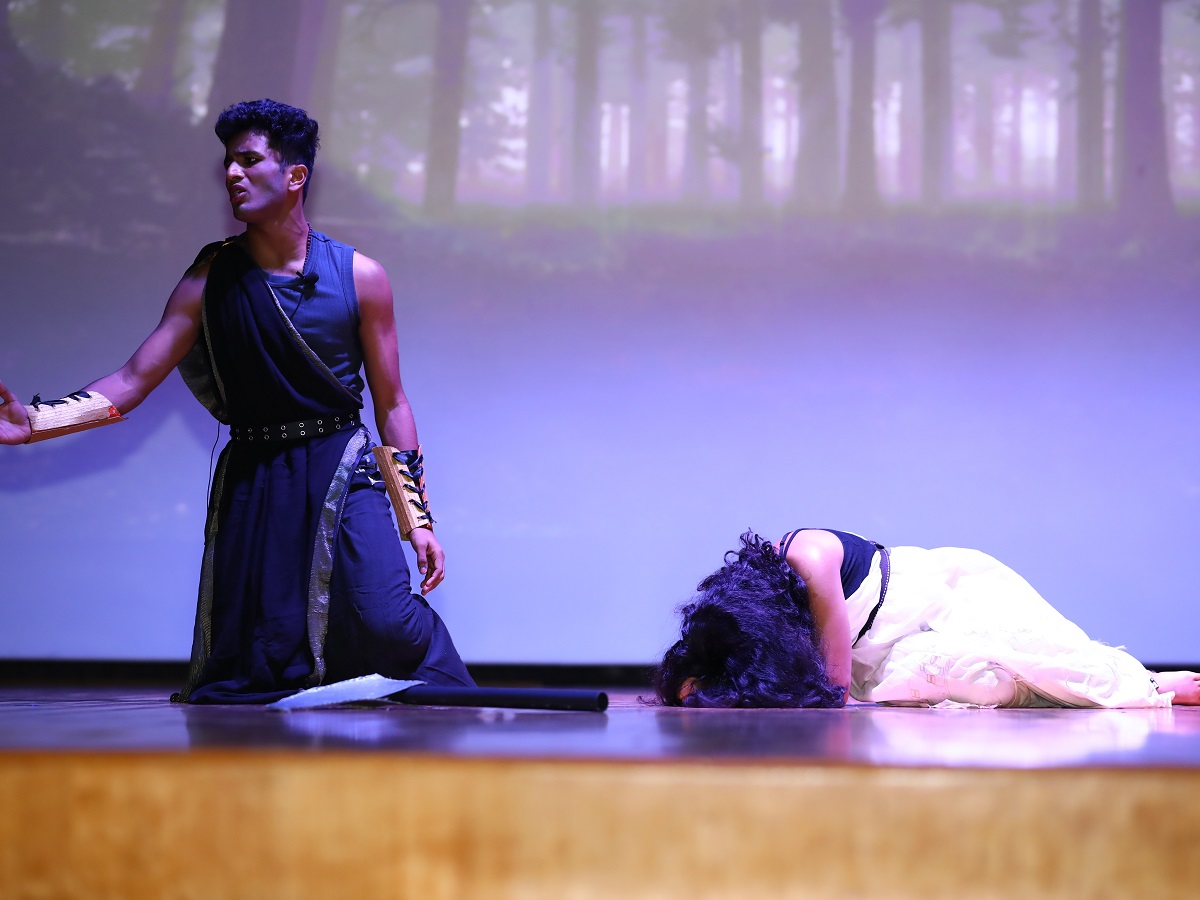‘All the world’s a stage’: Why Theatre Should be Included in Pedagogy?
- 17 September 2022

From Bharat Muni’s Natyashastra to Safdar Hashmi’s Jana Natya Manch, theatre as an art form has evolved tremendously over the centuries. A perfect mode of self-expression, theatre inculcates multiple other skills among its practitioners.
Over the decades, Indian theatre has undergone multiple transformations. Experiments in terms of forms and content can be easily charted by tracing the genealogy- right from ancient Indian theatre to postmodern Avante-Garde theatre. Indian theatre platform has witnessed multiple genius playwrights like the great Kalidasa, Shudraka, Girish Karnad, Habib Tanvir, and Arvind Gaur, among others. Moreover, with the foundation of the National School of Drama, the theatre has been given strong patronage in India.
Theatre and Education
Hereon, the most important question we arrive at is ‘how do theatrical practices enhance the learning experience of the students?’ Apart from enhancing the performance and speaking skills of the students, there are multiple other benefits of theatre. Let’s have a glimpse at the benefits of introducing theatrical practices in the classroom.
Students learn self-confidence by taking calculated risks in the classroom and on stage. Improv sessions truly help in this context.
Theatre offers a space for exploring new ideas, making imaginative decisions, and interpreting the text in dramatic ways.
Playing characters from various situations, eras, and cultures fosters tolerance and compassion for others.
Theatre improves both verbal and nonverbal expression of ideas in communication. It enhances vocalization, articulation, language fluency, and persuasiveness.
Students learn to explain to the audience the who, what, where, when, and why. Quick-witted solutions are encouraged by improvisation, which increases one’s capacity for adaptability.
Play, humor, and laughter take a center stage in the classroom through theatre, which boosts motivation and lowers stress.
By practicing and acting out the words, gestures, and cues, theatre practices help build up memory.
At Oakridge, Gachibowli we have a set theatre curriculum in which students learn a variety of theatre forms. Combining both theory and practice, we teach students about the concepts like Stanislavsky’s method acting, Bertolt Brecht’s Alienation affect, Jerzy Grotowski’s Poor Theatre, Meyerholds’ Biomechanics, Greek Theatre, Sanskrit Theatre, Commedia Dell Arte, Drama Therapy, and Indian and International Folk Theatre Forms. Besides this, there are also lessons on technical concepts like set design, costume, props, etc. Students also participate in a variety of events and perform different plays from Western to Indian Plays, comedy, tragedy, realistic performances to stylized performances. The aim herein is to maximize the potential of the student in every aspect possible through the means of performing arts.
Ms. Sheela Gangimalla
Head of Faculty- Theatre